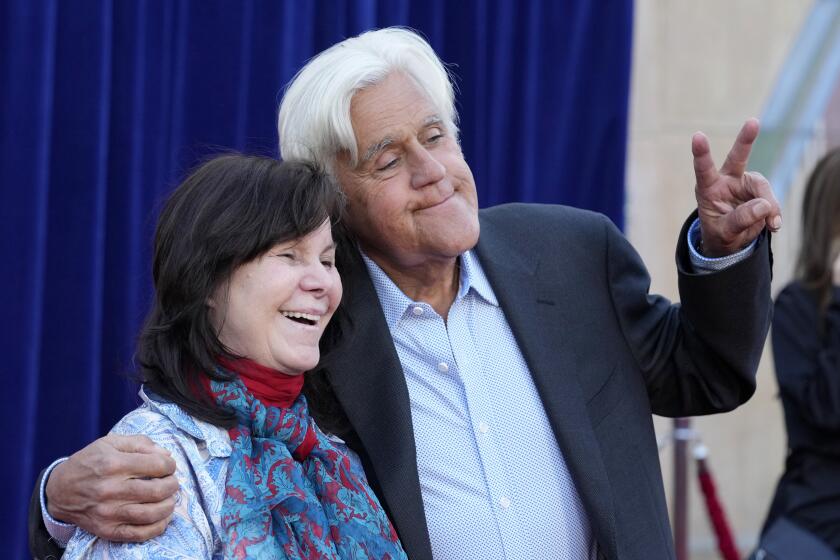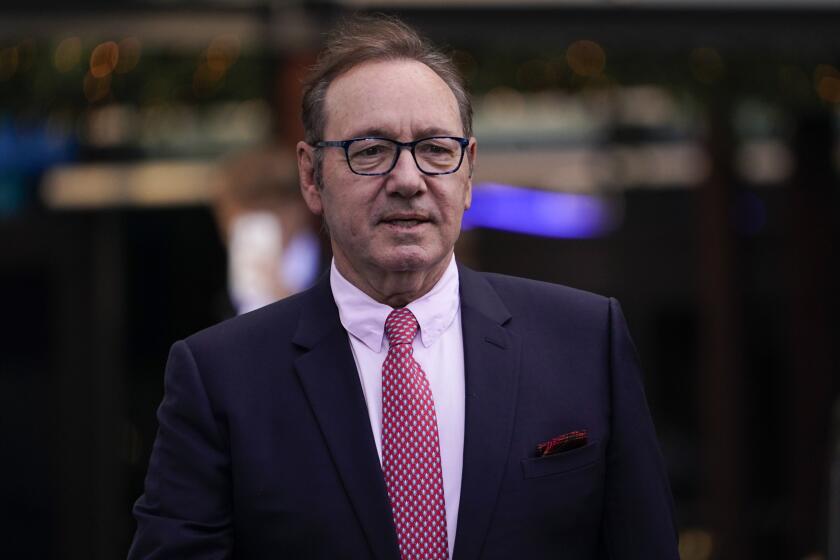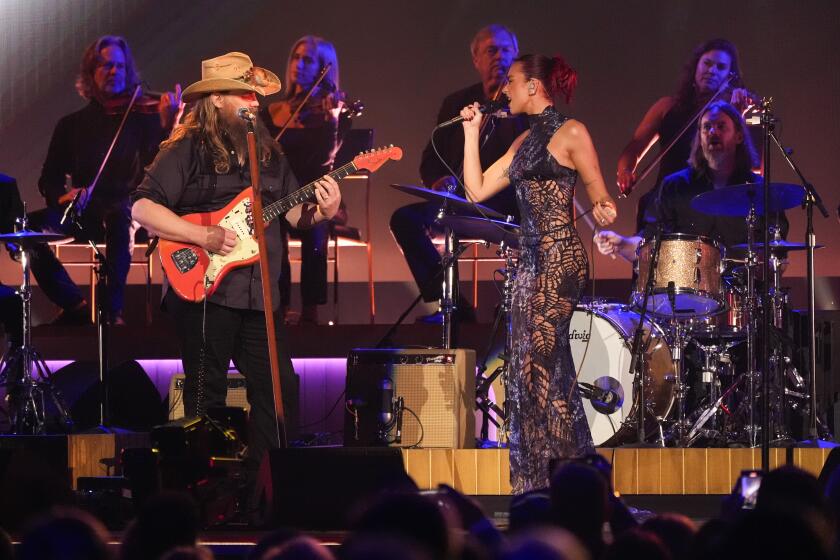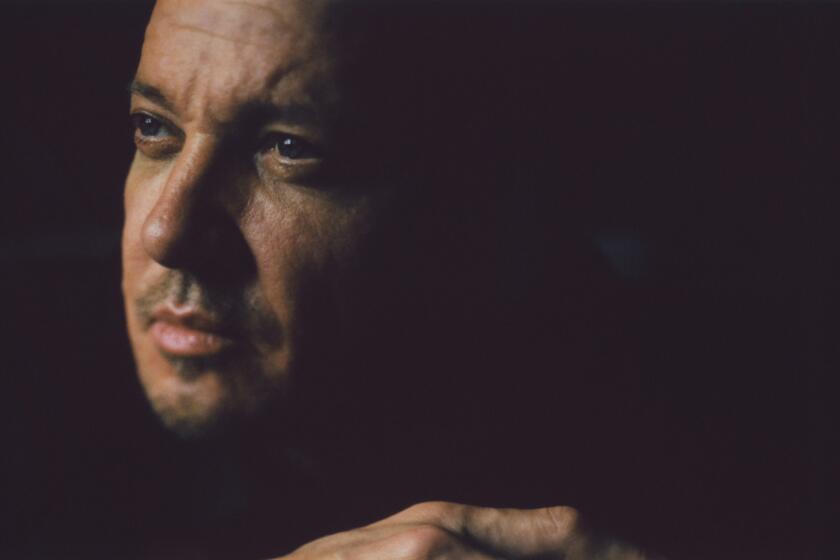‘Bachelor’ faces up to the harsh reality
If ABC cancels “The Bachelor” -- and God knows it should -- the franchise will have gone out on a high note: In this season, the seventh edition (10th if you include the three “Bachelorettes”), the show is as preposterous as ever, but it’s finally found a way to have fun.
For one thing, its producers stopped trying to affect any air of “class” -- gone are the suits and formal dresses of the rose ceremonies. They’ve also let go of the insistence that they are creating a marriageable relationship. But most important, they picked a partying lout of a bachelor in Charlie O’Connell, whose only adjectival descriptor of what he wants in a mate is “fun.” He is hilarious. And in Charlie, the five of us still watching the show have found a hero.
When last season’s “Bachelorette” ended in February, Jen Schefft chose neither of her two final suitors. This ending appeared to be the last straw in exposing the show’s fraudulent premise of finding true love for its contestants: It couldn’t even create a couple that lasted through the finale, much less a photo shoot for Us Weekly.
Even worse, that impasse was the culmination of Schefft’s disastrous run as a “Bachelorette.” She not only failed to turn around the show’s ratings, but each episode demonstrated that she had lost the appealing sweetness that made her popular during the third season of “The Bachelor,” which ended with Andrew Firestone proposing to her. In all, the “Bachelor”-”Bachelorette” franchise has produced one marriage, six broken relationships (one lasted a month) and Schefft’s nonstarter. It has also resulted in two question marks. This season’s couple is yet-to-be-determined, but so is the fate of Byron Velvick and Mary Delgado of season six. They got engaged at the end of the “Bachelor’s” fall run, and have yet to break up, at least publicly. (I picture them desperately wanting to break up, but unable to as they are locked in the basement of Mike Fleiss, the show’s creator.)
Each time the show attempted to find someone who might improve this track record, it made things worse: That meant having the producers pick people they deemed earnest enough to follow through on a promise made in a fantasy world of roses and ostentatious dates, in a sped-up courtship imposed by an episodic production schedule. And those contestants are boring.
Charlie is not boring. Throughout the season, he has laughed a lot, and seems to enjoy his drinks. . He eliminated one woman because she had a child, and he thought that was too much to handle. Another contestant -- a swimsuit model -- made it to the final four because she was “hot,” he said, though he admitted they had never had a conversation.
Even on paper, his perfect-catch qualifications are dubious: He is the younger brother of actor Jerry O’Connell, currently of “Crossing Jordan” and formerly of the movie “Stand by Me,” in which he played the fat kid. Charlie has done some acting too, but his primary profession seems to be as a real estate investor. (For those of us who watch reality television during this bubble economy, “I am a real estate investor” is starting to sound a lot like “I work at Enron” must have sounded five years ago.)
His sketchy resume aside, Charlie’s acting past (present?) has proven to be another asset for the show: He is completely comfortable in front of the cameras. The forced chitchat requisite to dating shows is much more palatable when someone unselfconscious and glib is the star of every scene. And whether it was the producers’ choice or Charlie’s demand, the show has been tailored to his casual style. He lives in his real apartment in New York City, some of the dates have been at his local hangouts and, most important, Charlie is no longer required to say, “Will you accept this rose?” to the women he wants to keep in the game: He simply hands them a rose.
In the penultimate episode, Charlie dispensed with Sarah W., the show’s villain. She had made enemies of all the other women, and seemed increasingly unhinged as the weeks progressed. She deemed her ouster part of a “racist” conspiracy -- Sarah W. is white -- against pretty people. “If I would have been a little uglier and a little less noticeable, you know that it’s really sad that’s not ever going to happen,” she said nonsensically as she cried to the camera.
With her gone, Charlie has two choices before him when the final episode airs Monday: Krisily, a salon coordinator from Rhode Island, and Sarah B., a.k.a. “Little Sarah,” who is a Texas nurse. He has a nice rapport with both women, who seem to be sweet people. But let’s face it: He will not, nor should he, marry either of them.
Meanwhile, now that the reality format is no longer a programming novelty, we can begin to look at which types work and which don’t. Million-dollar prizes? Yes. Personal growth due to an intervention or home makeover? It appears so. Giving someone a job as a real estate developer or a top model? For now.
That we ever expected people to marry strangers they met on television -- and that we weren’t more shocked that one of the couples actually did marry -- shows how romantic the idea of reality television was three years ago, when “The Bachelor” began. But that it took this long for the show to loosen up and stop promising such things is why no one watches it anymore.
The complete guide to home viewing
Get Screen Gab for everything about the TV shows and streaming movies everyone’s talking about.
You may occasionally receive promotional content from the Los Angeles Times.



